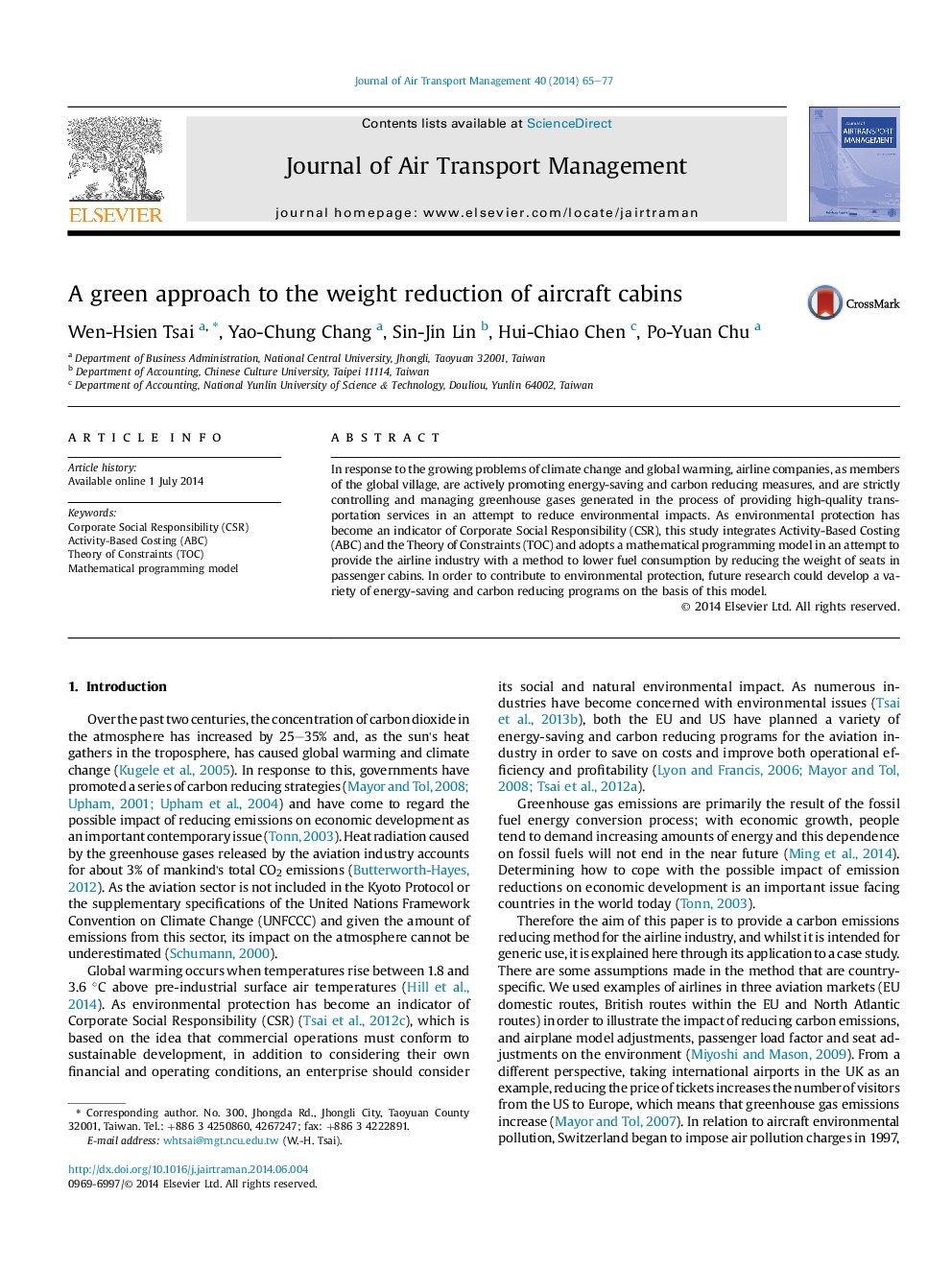| Article ID | Journal | Published Year | Pages | File Type |
|---|---|---|---|---|
| 1030781 | Journal of Air Transport Management | 2014 | 13 Pages |
•An evaluation model for energy-saving plans in the airline industry is proposed.•An aircraft weight reduction plan is provided.•Activity-Based Costing (ABC) in resource allocation is adopted.•Bottleneck analysis by using the Theory of Constraints (TOC) is applied.•A hybrid decision-making model that integrates ABC and TOC is provided.
In response to the growing problems of climate change and global warming, airline companies, as members of the global village, are actively promoting energy-saving and carbon reducing measures, and are strictly controlling and managing greenhouse gases generated in the process of providing high-quality transportation services in an attempt to reduce environmental impacts. As environmental protection has become an indicator of Corporate Social Responsibility (CSR), this study integrates Activity-Based Costing (ABC) and the Theory of Constraints (TOC) and adopts a mathematical programming model in an attempt to provide the airline industry with a method to lower fuel consumption by reducing the weight of seats in passenger cabins. In order to contribute to environmental protection, future research could develop a variety of energy-saving and carbon reducing programs on the basis of this model.
